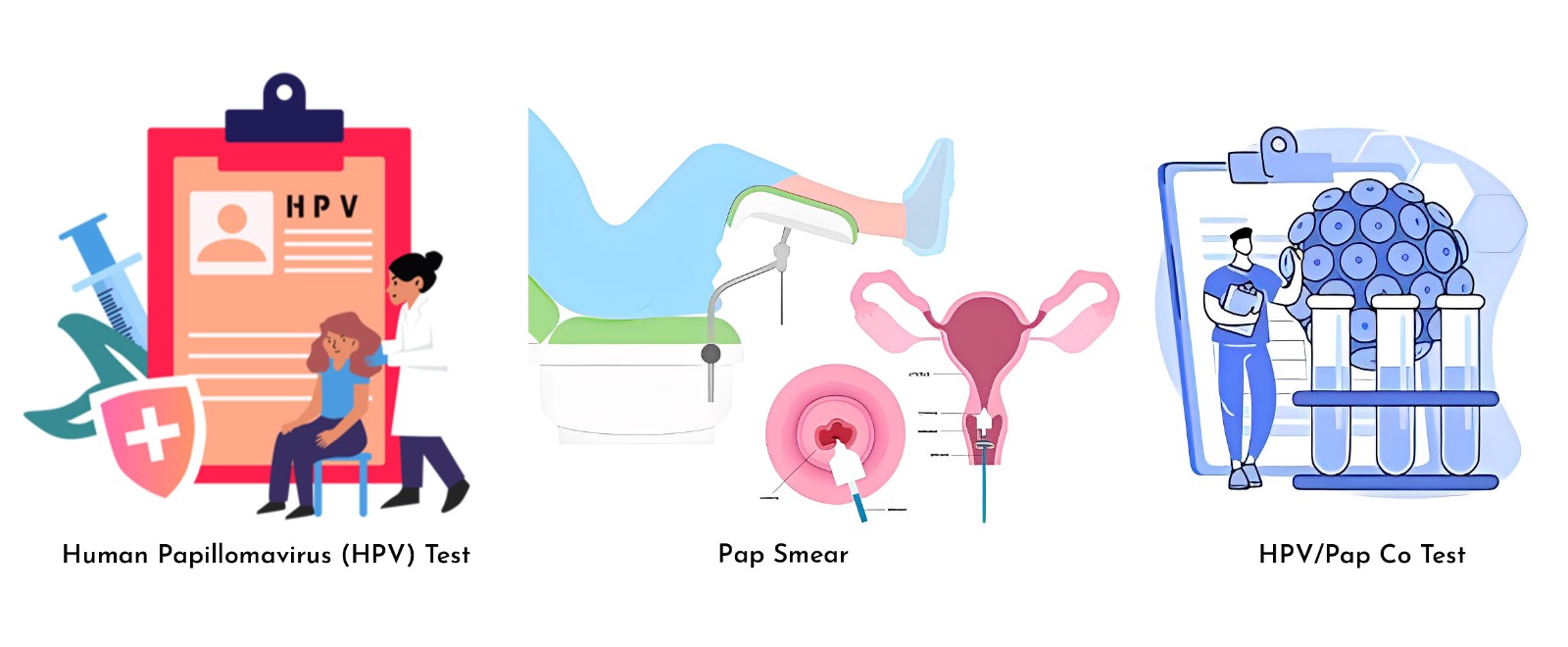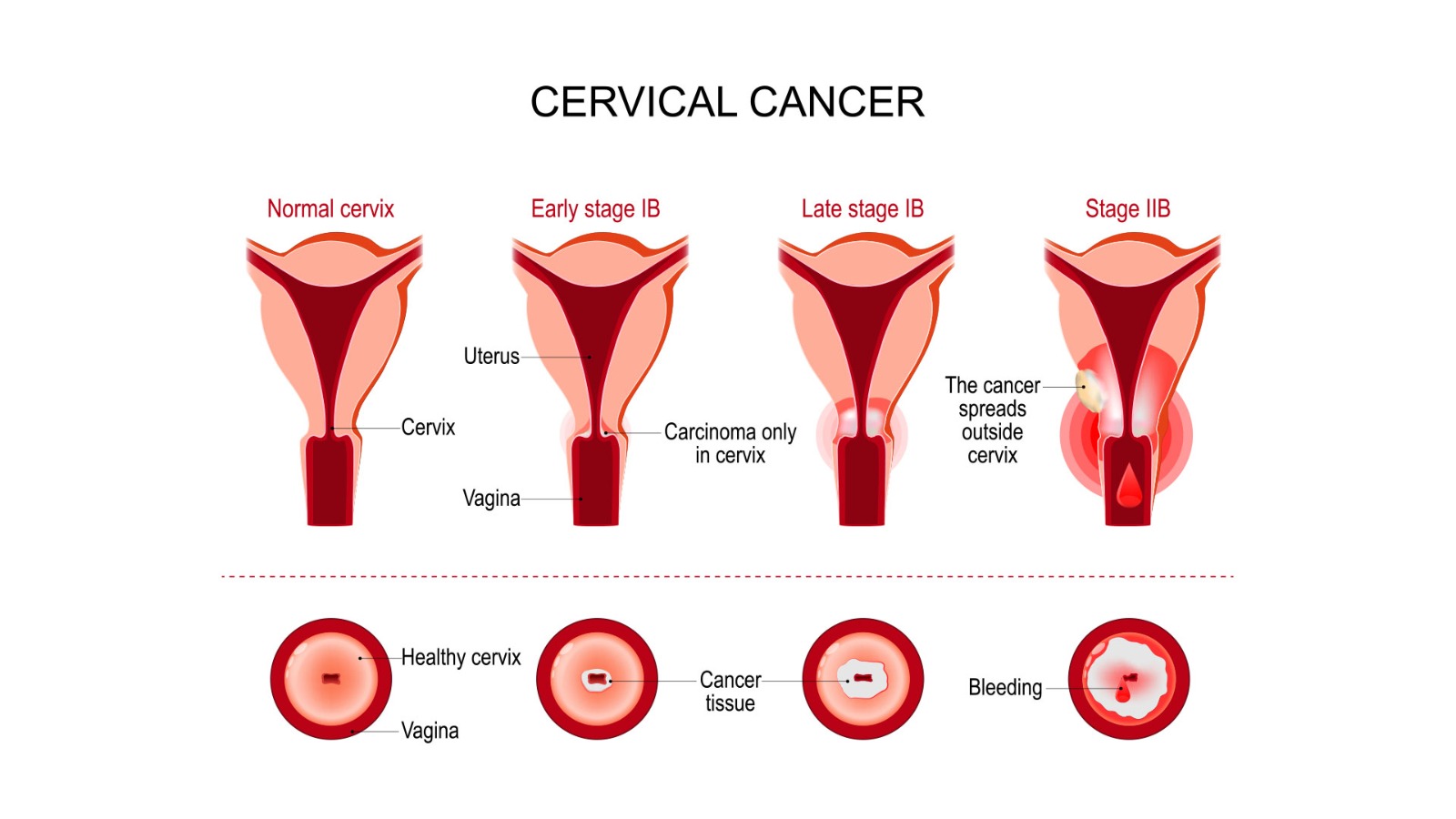Cervical cancer is relatively rare and as such many people are unaware of its screening processes and its importance. It is estimated that over 70,000 women in India may have lost their lives to cervical cancer in 2023. Any woman over the age of 15 can be susceptible to cervical cancer and it is only with preventative measures and regular screening tests, the condition can be kept in check.
So, let’s review the methods for cervical cancer screening as well as the preventative measures for cervical cancer. Learning about these measures yourself and sharing it with others can help save lives. So, make sure you go through the content in its entirety and share it with your loved ones.
As you would already know, diagnosing cancer at an early stage is one of the best ways to beat cancer. Based on your risk factors, doctors will recommend you to be on the lookout for cancer through screening diagnostic tests regularly. The difference between an early detection of cervical cancer and a late-stage detection, which has a lower cervical cancer survival rate is proactive screening. And that’s the primary importance of cervical cancer screening. So, what is cervical cancer screening? When should you be going through with it? And what are the risk factors of cervical cancer you should be monitoring? Let’s find out.
Cervical cancer screening involves diagnostic tests that are done to check for precancerous developments in your cervix. It is possible in some cases that cervical cancer screening tests can find cancer cells in your test reports. However, since these tests are performed as a part of routine physical checkups and not based on reported symptoms, the cancer can be treated with medical intervention.
Even in the case of cervical cancer screening finding precancerous developments in your cervix, they can be treated medically with the treatments having a higher rate of success because of the early detection. There are three cervical cancer screening tests primarily, let’s review the different tests.

Now that you know about cervical cancer screening and the tests used to screen for the condition, let’s review when you need to go through these tests.
Cervical cancer screening needs to start as early as your 20s. Even though the condition shows symptoms and is diagnosed in women over the age of 30 and even 40, the screening process needs to start early for better health outcomes.
A cancer that has started showing disruptive symptoms has the potential to spread to other parts of the body, this can cause unintended complications and even death without extensive cervical cancer treatment. So, to keep you safe, doctors recommend a preventative course of action through screening tests from an early age. Let’s go through the screening test requirements for different age groups.
Alongside regular screening tests, being aware of cervical cancer risk factors is also very important for patients to ensure they are safe from the condition. Here’s a look at the most common risk factors for cervical cancer.
Screening is one part of preventing cancer, the other part is taking active preventative measures for cervical cancer. From lifestyle and dietary changes to medical treatments including vaccination, there’s a lot you can do to reduce your cervical cancer risk. Let’s review the different preventative measures for cervical cancer.
HPV Vaccine
Yes, there is vaccination available for HPV even in India. Anybody from the age of nine to 26 can get the HPV vaccine. It is one of the best ways to reduce your risk of cervical cancer. Getting the vaccine before you become an adult and sexually active is recommended ideally. However, women who have not had the vaccine as of yet, and are as old as 26, can get the vaccine too. Even though the vaccine can’t protect you against HPV strains that you may already have, it is recommended that you get it to protect against other virus strains.
Condoms
Using condoms during any sexual activity is one of the best ways to reduce the risk of sexually transmitted diseases and infections. It is also the best way to reduce your risk of HPV and in turn cervical cancer. It should be mentioned that the risk of STIs and STDs is completely eliminated by using condoms, the risk is however significantly reduced. So, make sure you practice safe sex as it is the best way to reduce your risk of STIs and serious illnesses like cervical cancer.

Even though screening should be able to help you keep the condition away in most cases, being aware of the symptoms is also an important part. Cervical cancer like other types of cancer doesn’t show symptoms initially with the symptoms acting up more and more as it progresses through the different stages. Here’s a look at the symptoms of cervical cancer in its different stages.
Stage 1
Stage 2
Stage 3
Stage 4
If you are experiencing any of these symptoms and you happen to be in the age group with the highest risk, you should definitely go for a medical checkup. Timely treatment makes it possible for women to reduce their risks and get a possible treatment for cervical cancer. It is important to note that the cervical cancer survival rate is highest when the treatment starts early. In general, cervical cancer has a five-year survival rate between 38.6 to 63.9 percent in India.
These are some of the best ways to prevent cervical cancer. So, now that you know about the preventative measures, make sure you follow through and get the proper screening tests as recommended by doctors. Feel free to check out MASSH for the best cervical cancer test in Delhi and even talk to our doctors about getting the HPV vaccine, if you are eligible. Check out our website to learn more about cervical cancer causes, cervical cancer symptoms, and its treatment options at MASSH.
For women in the 30 to 39 age group, cervical cancer is the fifth most commonly diagnosed cancer. So let’s find out how common it is and preventa...
Written by MASSH
Feb 24, 2024
With the HPV vaccine, it is possible to reduce your risk of cervical cancer and genital warts almost completely if the vaccine is taken at the ri...
Written by MASSH
Feb 13, 2024